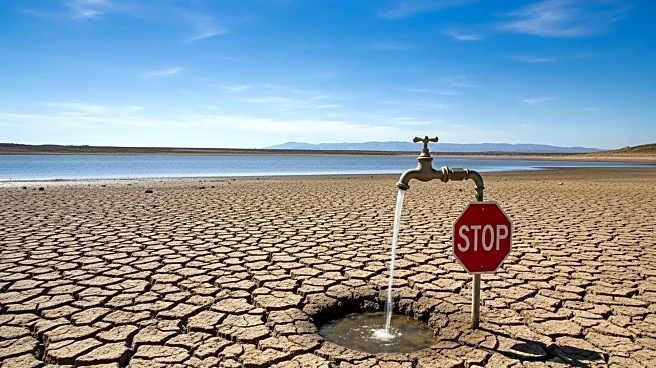What is the story about?
What's Happening?
Stephen Schwarzman, a billionaire and supporter of President Trump, has been prevented from using water tankers to fill a lake on his estate in Wiltshire, UK, during a significant drought. Southern Water, the local water company, halted the deliveries after residents complained about the use of water during a hosepipe ban. Although the water usage was legal under local regulations, the company expressed disapproval of the action. Schwarzman, who purchased the estate in 2022, has been renovating the property, including the construction of the lake. The water company is reviewing its processes to prevent similar occurrences in the future.
Why It's Important?
This incident highlights the tension between private wealth and public resource management during environmental crises. The use of water for non-essential purposes during a drought raises ethical questions about resource allocation and the responsibilities of wealthy individuals. It underscores the challenges faced by water companies in enforcing restrictions and the potential for public backlash against perceived misuse of resources. The situation also reflects broader issues of environmental sustainability and the need for stricter regulations to protect natural resources during climate-related events.
What's Next?
Southern Water is conducting a thorough review to tighten monitoring processes and address any legal loopholes. The company has applied for a drought order to restrict water usage further, including banning businesses from filling lakes. The outcome of this review and the potential implementation of stricter regulations could influence future water management policies in the UK. Stakeholders, including environmental groups and local residents, may push for more robust measures to ensure equitable water distribution during droughts.
Beyond the Headlines
The incident raises questions about the balance between private property rights and public resource conservation. It highlights the need for comprehensive policies that address the impact of climate change on water availability and the role of affluent individuals in contributing to sustainable practices. The situation may prompt discussions on the ethical responsibilities of the wealthy in mitigating environmental impacts and supporting community resilience during climate challenges.

















